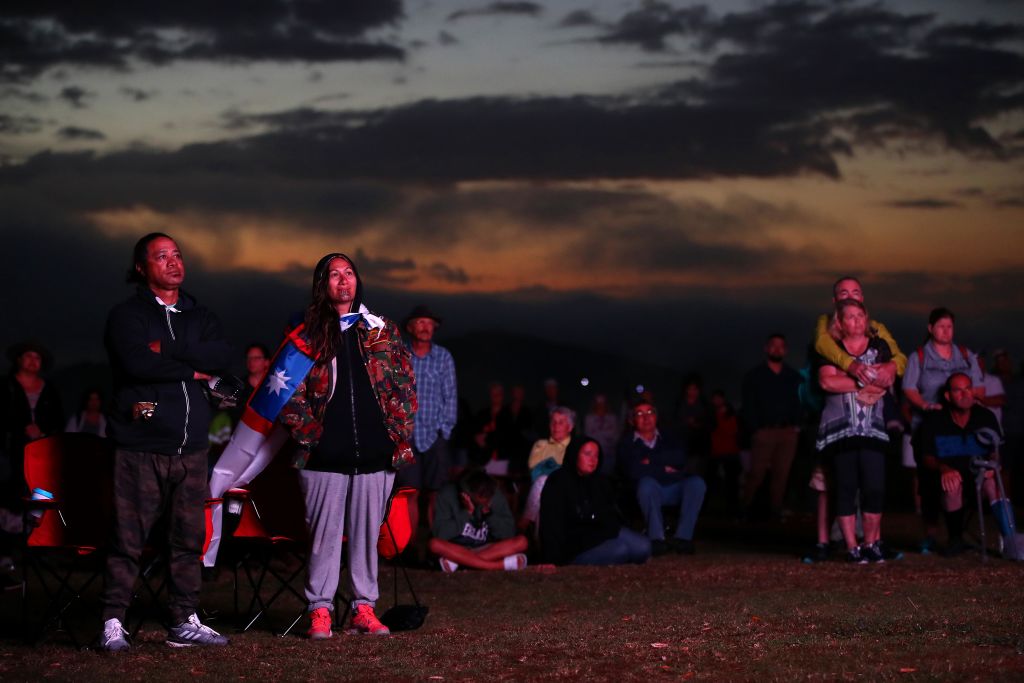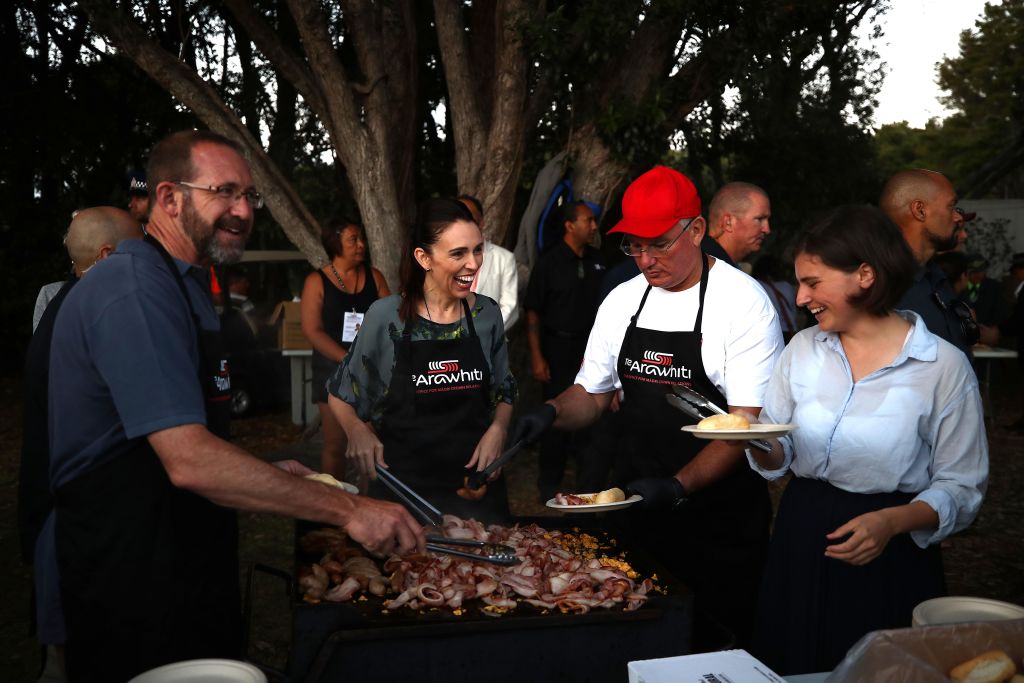
Politicians including Prime Minister Jacinda Ardern, the Prime Minister of Samoa and other dignitaries crowded into the Whare Rūnanga in the Bay of Islands this morning.
More than 1000 people attended a church service on the marae of the treaty grounds.
The number in attendance this morning was down on last year, which could be to do with it being the second time Jacinda Ardern has visited.
Anglican Archbishop Philip Richardson prayed for an enduring respectful and honest partnership between Māori and Pākehā.
Ms Ardern offered a prayer for Aoteraoa New Zealand and for the poor and those on the margins of society.
Shortly after the dawn service, Ms Ardern grabbed an apron and tongs to help with the barbecue, before being put on to the all important job of tomato sauce allocation.
The government catering crew was so efficient this year that at one point the coffee queue was far longer than the one for kai.

Everyone has a part to play
Ms Ardern said while the government should be held to account for what it's doing for Māori, all New Zealanders had a part to play in making a better society.
In an interview with RNZ at Waitangi this morning, Ms Ardern said the high rate of Māori imprisonment, unemployment and housing were all major focuses for the government.
"We can and we should continue to make progress on all of those issues but actually that's not what will bring us as people's together. Our understanding of one another - culture, our shared heritage, understanding of the language, those are the things that ultimately bring our two people's together."
Ms Ardern said there was a sense of optimism at Waitangi, which was often very different to how it was portrayed.
Meanwhile, Deputy Prime Minister Winston Peters said the government would be able to reach a treaty settlement with Ngāpuhi once some people set aside their own egos and plans.
Ngāpuhi rejected a revised mandate for settlement talks when more than 70 of its 100-plus hapū gave it the thumbs down two months ago.
The former government accepted the mandate known as Tuhoronuku, initiated by rūnanga leader Sonny Tau.
But the current coalition government said the latest vote had made it clear hapū did not want to settle under that banner, or the most recent so-called evolved version.
Speaking to RNZ at Waitangi, Winston Peters said he believed an agreement could be made if Ngāpuhi worked together.
"The moment some people put aside their egos and their separate plans and realise that together they can get so much more than they would get separately."












